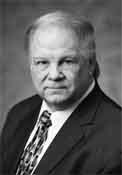 | John Eck
is the owner of the ECK Agency, Inc., which is an independent insurance agency representing over 80 companies offering life, health, property & casualty insurance. Beginning his career in 1968, he is a Certified Insurance Counselor, a licensed Kansas insurance broker, and has held numerous positions with other related business ventures. Currently an active member of his local School Board, he has also held elected positions on the City Council and Hospital Board in past years. John can be reached at his office by phone at (800) 444-4911, or you may e-mail him at: eck@eckagency.com |
Insurance
2001-09-01 10:08:00
Employee practices insurance
Question: We are a small business with 26 employees. We feel we have the entire primary areas of insurance covered (i. e. property, liability, work comp, group health & dental, etc.). The other day I heard mention of 'employee practices insurance'. What is this? Do I need it?
Answer: Most business owners have worked and invested much time to get where they are today. They know that in the Midwest, storms happen and they want their property and vehicles insured against damage and destruction. They want 'full coverage' on their property. They also 'full coverage' and help with defense costs in the event they are in a lawsuit caused by their company's negligence. When you mentioned in your question that you have the area of liability covered, what you probably meant was that you have purchased a liability policy together with all its exclusions and definitions. One of the many exclusions in the liability policy is any action against the company caused by 'employment practices'. Employment practices relates to the relationship between the employer and the person being interviewed for the job, to the employee once he/she is hired and all the time period until the employee terminates (voluntarily or otherwise). In other words, it is hiring practices, working and work site conditions, and termination practices. It is not employee bodily injury situations (this is covered by work comp).Owners and managers that believe the myth that 'employment lawsuits' only happen to other companies are exposing their company's assets to serious financial risk. While a company might believe it is able to absorb the cost and time of defending an isolated employee complaint, it is possible that they are not aware that compensatory awards for employment suits reached a high of over $204,300 per average award in 1995 which was an increase of 56% over the previous year and has been increasing each year since then.Title VII of the Civil Rights Act of 1964, followed by the Americans with Disabilities Act (ADA), the Age Discrimination in Employment Act, the Equal Pay Act, the Rehabilitation Act of 1973, the Civil Rights Act of 1991, and the Employee Polygraph Protection Act are just a few of the employee protection laws that give volumes to the legal protection system. If your business does everything right, you probably won't have a judgement awarded against you, but out of court defense costs generally exceed over $50,000. For those cases that do end up in court, one insurance company reports that employers lose 60% of the cases, the medium judgement awarded is $167,000 and the cost of the jury trial averages over $450,000. A few examples of awards from this same reporting company are: Maternity leave victim - $935,000 Wrongful termination - Native born Indian settles out of court for $12,000 Woman wrongfully discharged - Intentional infliction of emotional stress $95,000 Cancer victim employment discrimination, under ADA laws $272,000 Grocery Clerk sexual discrimination $300,000 and Racial discrimination - Doctors office $300,000There is much more public awareness due to the reporting by the newspapers, magazines, radio and television of high profile cases such as the Clarence Thomas/Anita Hill case and many others since that time. Other high profile cases and large settlements have encouraged and inspired attorneys to enter the employment practices law arena. Corporate downsizing resulting in terminations, disputes about what constitutes 'disability', a large backlog of EEOC complaints inviting disgruntled employees to seek out an attorney for quicker compensation are just a few more reasons many companies are considering Employment Practices Insurance.Wrongful employment acts generally mean any actual or alleged act of Discrimination, Sexual Harassment or Wrongful termination and most often the insurance company will pay for defense and judgements awarded in theses situations. Many companies are expanding this definition to include Demotion, Failure to Promote, Retaliation, Wrongful Discipline, Negligent Evaluation/Training, and Workplace Harassment and even Third party harassment.As Employment Practices insurance is not inexpensive, other things you could consider as an alternative would be:· Having a designated human resource manager· Reviews prior to hiring/terminations· Conducting periodic employment practices procedures· Requiring you managers to attend specific training courses relating to employment practices· Establishing written guidelines for grievances, and other employment practicesOver 50% of all marriages terminate in divorce. There is no insurance to pay the enormous costs associated with divorce. As an employer, you like to think that you trust all 26 of your employees (how well do you know your occasional temporary workers?). A continued trust and respect between the employee/employer will help in avoiding the types of lawsuits referred to above; however, of your 26 employees, how many are on the signature card of your company checking account? If the marriage between the employer/employee terminates and the unhappy employee feels he/she has been wronged, there is insurance to assist this situation. I would recommend that you check out the premium cost and benefits for your company.


